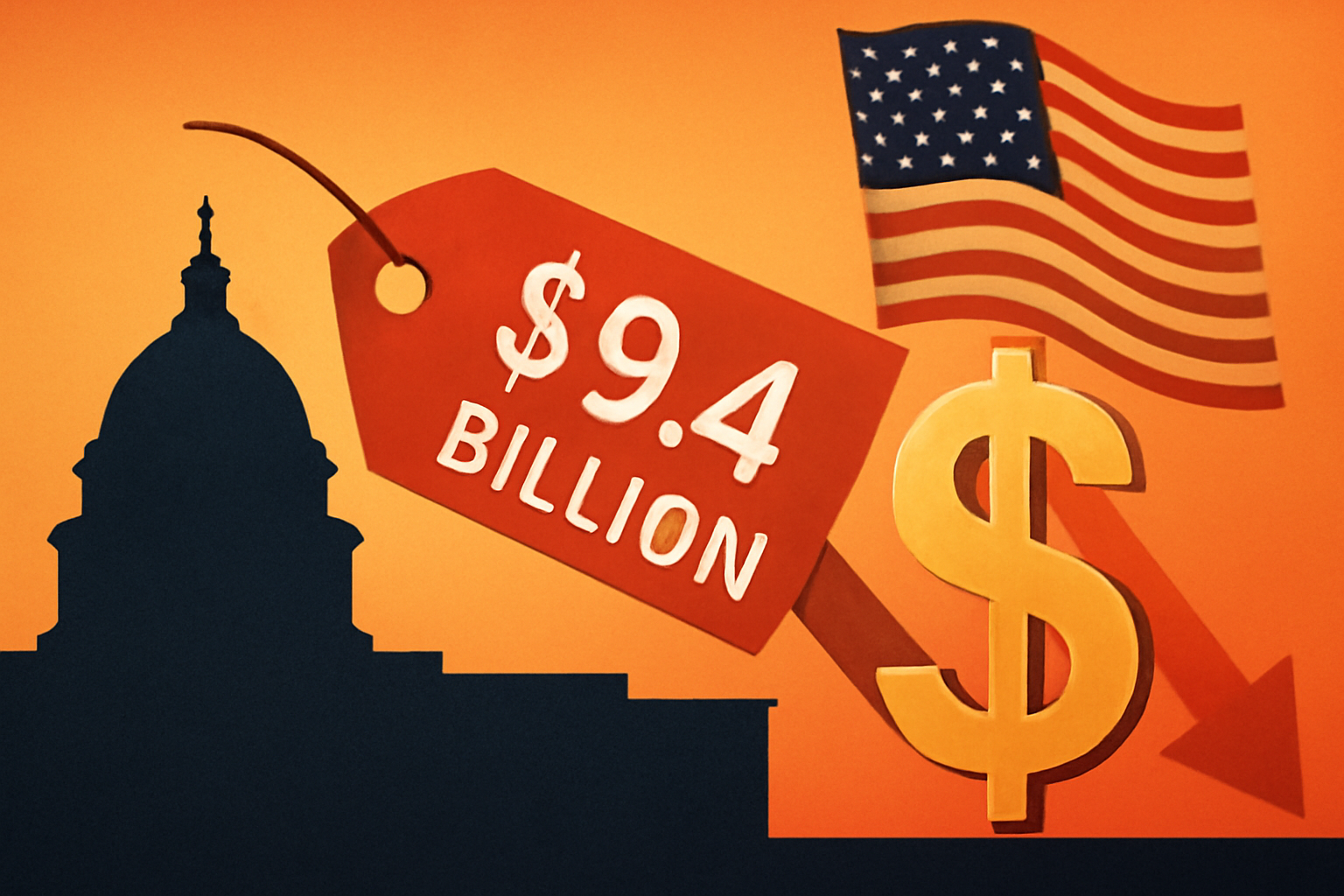Fiscal Retrenchment Moves to Forefront as Geopolitics Loom Large
In a politically charged decision with fiscal and market implications, the U.S. House of Representatives passed a $9.4 billion rescissions package this week, aiming to claw back previously authorized funds in areas such as foreign aid and public broadcasting. The bill — part of a broader Republican push to curb discretionary spending — now heads to the Senate, where it is expected to face stiff opposition.
The package comes amid a backdrop of intensifying geopolitical tensions, including the Israeli strikes on Iran and renewed debates over U.S. defense posture, making this legislation a focal point for investors gauging political risk and economic trajectory.
Why This Matters for Investors
Fiscal tightening at this stage of the macroeconomic cycle carries important signals for investors, especially when markets are already navigating interest rate uncertainty, commodity shocks, and global instability.
“When spending cuts hit politically sensitive areas like foreign aid, it can send signals about future policy direction — especially around global engagement and public sector spending,” said Diane Swonk, Chief Economist at KPMG, in a comment to The Wall Street Journal.
Critically, the rescissions do not directly reduce the federal deficit since they target unobligated balances. But the political symbolism — and potential shift toward austerity — may impact investor sentiment on sectors sensitive to federal funding and government stability.
Core Analysis: What’s in the Bill and Why Markets Care
1. Breakdown of Cuts
The proposed rescissions include:
- $4.5 billion in foreign aid previously designated for global development, diplomacy, and humanitarian programs.
- $2.1 billion from public broadcasting and cultural institutions, including NPR and PBS.
- $1.3 billion in climate-related grants and environmental agency funds.
- The remaining funds stem from unspent pandemic-era allocations and agency operational surpluses.
Though the fiscal impact is modest relative to the $6.5 trillion federal budget, the bill is politically significant, reflecting a renewed effort to roll back progressive spending initiatives.
2. Market Sensitivity to Political Signaling
Markets often react not only to the numbers, but to legislative signals that may foreshadow broader fiscal policy trends. In this case, investor attention is fixed on:
- Whether more aggressive cuts could follow.
- How potential gridlock in the Senate might affect fiscal negotiations and government funding later this year.
- The broader implications for global stability, given the reduction in foreign aid at a time of international conflict.
3. Sector Watch
- Defense Contractors: A potential reallocation from foreign aid to defense could benefit firms like Raytheon, Lockheed Martin, and Northrop Grumman.
- Public Media: Reduced funding could weigh on nonprofits and service providers tied to federal content grants.
- Clean Energy and ESG: A rollback of environmental funding may pressure green infrastructure and ESG-focused firms that rely on public-private initiatives.
Future Trends to Watch
- Senate Negotiations: The upper chamber is likely to propose amendments, especially from moderates and Democrats concerned about international commitments.
- Fiscal Posture Heading Into Elections: As campaign rhetoric ramps up, investors should track how budget discipline or populist spending emerges across parties.
- Potential Credit Market Impacts: Rating agencies like Fitch and Moody’s often monitor fiscal behavior in the context of political dysfunction — prolonged budget fights could revive debt ceiling fears.
Key Investment Insight
While the $9.4 billion package is small in macro terms, it signals a shift toward fiscal restraint that could ripple through sensitive sectors. Investors should closely follow federal budget debates and reassess exposure to industries reliant on discretionary government funding.
Volatility could increase if these discussions signal broader austerity or if international partners react negatively to cuts in U.S. foreign engagement. In the meantime, defensive portfolio positioning and awareness of politically exposed sectors are prudent strategies.
Stay Ahead with MoneyNews.Today
Politics shapes policy — and policy moves markets. As fiscal debates heat up in Washington, MoneyNews.Today delivers the insights investors need to make informed decisions in uncertain times.
Subscribe for daily analysis, curated briefings, and sharp commentary on the stories that move markets.





